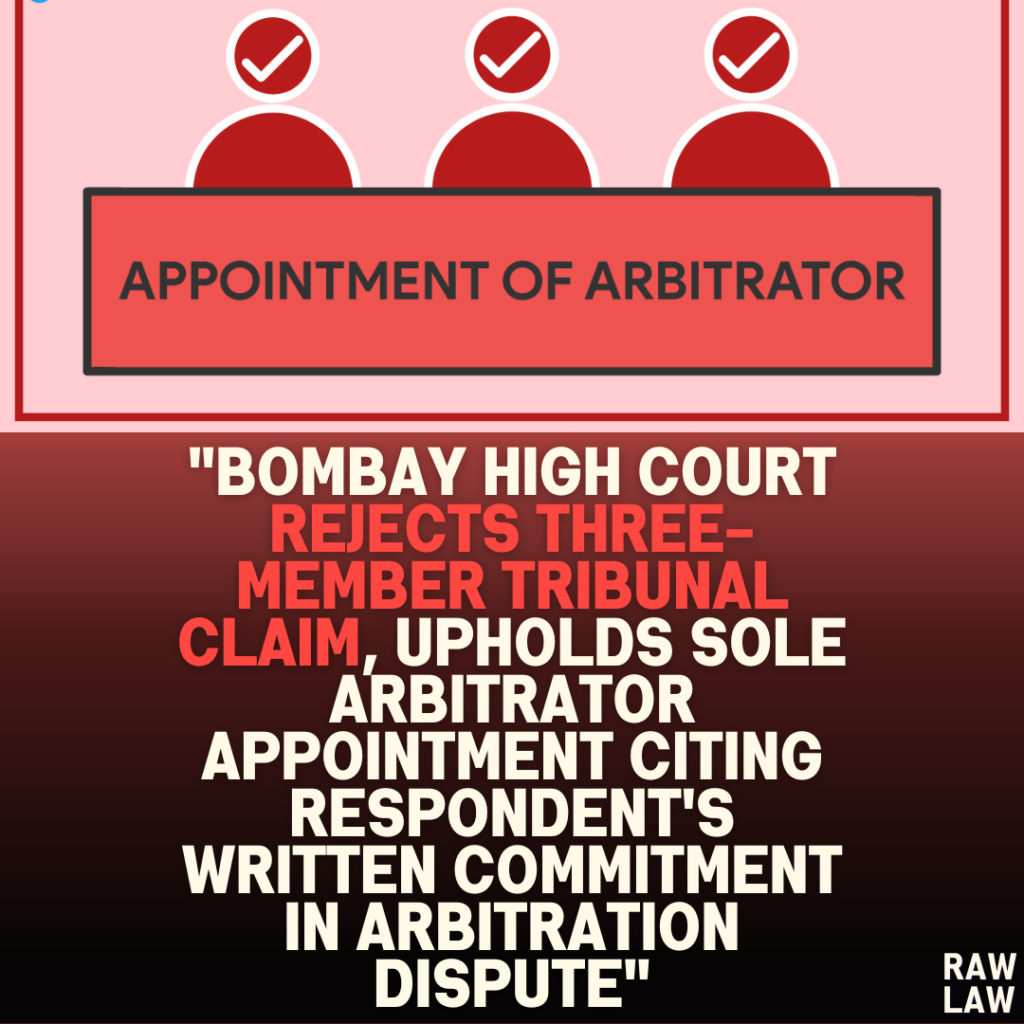Court’s Decision:
The Bombay High Court dismissed a review petition filed by Global Zone Sanitary Infrastructure Pvt. Ltd. (the original respondent) challenging the appointment of a sole arbitrator in an ongoing commercial arbitration dispute. The court upheld its earlier order appointing the sole arbitrator, citing that the original respondent had, in writing, agreed to arbitration by a court-appointed arbitrator. The court also imposed a cost of ₹1,25,000 on the original respondent to be paid to the original applicant, Advent Infracon.
Facts of the Case:
The original applicant, Advent Infracon, had initiated arbitration proceedings against Global Zone Sanitary Infrastructure Pvt. Ltd. in May 2022 and proposed an arbitrator. The original respondent initially did not deny the arbitration agreement but refused to appoint an arbitrator. Later, the respondent expressed willingness to proceed with arbitration by a sole arbitrator, either mutually agreed upon or appointed by the court.
The court, after the original respondent failed to cooperate in the arbitration process, appointed a sole arbitrator in June 2024. The original respondent then filed this review petition, arguing that the appointment of a sole arbitrator contradicted the original arbitration agreement, which allegedly required a three-member tribunal.
Petitioner’s Arguments:
The original respondent argued that the appointment of a sole arbitrator was contrary to the terms of the arbitration agreement. They claimed the court should have appointed a three-member arbitral tribunal and that their previous acceptance of a sole arbitrator was conditional and later rejected.
Respondent’s Arguments:
Advent Infracon, represented by its counsel, argued that the original respondent had explicitly agreed to the appointment of a sole arbitrator in its written communications. They contended that the respondent’s refusal to cooperate and delays in the arbitration process justified the court’s intervention and appointment of a sole arbitrator.
Court’s Reasoning:
The court emphasized that party autonomy is a cornerstone of arbitration, but it also noted that a party cannot frustrate the arbitration process by making contradictory claims. The court observed that the original respondent had forfeited its right to appoint an arbitrator by delaying and obstructing the process. The court rejected the argument that a three-member tribunal was necessary, citing the original respondent’s written commitment to arbitration by a court-appointed sole arbitrator. The court found no valid reason to review or recall the earlier order appointing the sole arbitrator.
Conclusion:
The review petition was dismissed, and the original respondent was ordered to pay ₹1,25,000 in costs to the original applicant. The court affirmed the appointment of the sole arbitrator and directed the arbitral tribunal to proceed with the dispute resolution uninfluenced by the findings in the judgment.



